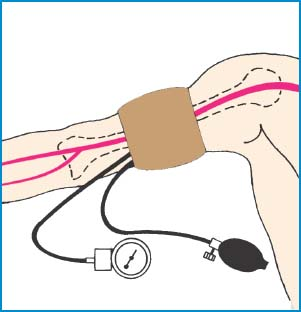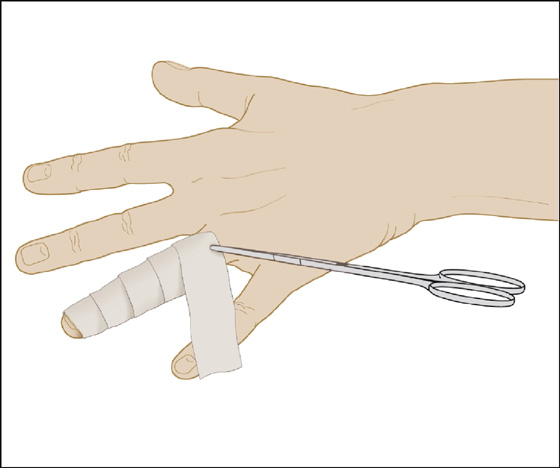The Importance of Jewelry Removal During Surgery: A Comprehensive Guide
Related Articles: The Importance of Jewelry Removal During Surgery: A Comprehensive Guide
Introduction
With enthusiasm, let’s navigate through the intriguing topic related to The Importance of Jewelry Removal During Surgery: A Comprehensive Guide. Let’s weave interesting information and offer fresh perspectives to the readers.
Table of Content
The Importance of Jewelry Removal During Surgery: A Comprehensive Guide

Surgical procedures are complex medical interventions designed to address various health concerns. While the focus naturally lies on the medical aspects of the surgery, there are crucial pre-operative steps that patients must adhere to for their safety and the success of the procedure. One such crucial aspect is the removal of jewelry.
Why is Jewelry Removal Necessary During Surgery?
The presence of jewelry during surgery poses a significant risk to both the patient and the surgical team. Here’s a breakdown of the potential hazards:
1. Interference with Medical Equipment:
- Electrocautery: This device uses high-frequency electrical currents to cauterize blood vessels during surgery. Jewelry, especially those containing metals, can act as a conductor, leading to burns, tissue damage, or even electrical shock.
- Magnetic Resonance Imaging (MRI): Some jewelry, particularly those containing ferrous metals, can be attracted to the strong magnetic fields of MRI machines. This can lead to severe injuries, damage to the equipment, and compromise the accuracy of the scans.
- Electrocardiogram (ECG): Jewelry, especially necklaces, can interfere with the electrical signals detected by the ECG, potentially masking vital information about the patient’s heart rhythm.
- Surgical Instruments: Jewelry can interfere with the smooth functioning of surgical instruments, leading to complications during the procedure.
2. Potential for Infection:
- Contamination: Jewelry, especially rings, can harbor bacteria and other microorganisms. During surgery, these contaminants can be transferred to the surgical site, increasing the risk of infection.
- Skin Irritation: Jewelry can irritate the skin, particularly during prolonged surgical procedures, increasing the risk of infection.
3. Patient Safety:
- Entanglement: Jewelry can become entangled in surgical equipment or drapes, causing delays and potentially jeopardizing the patient’s safety.
- Obstruction: Jewelry can obstruct the surgeon’s view of the surgical field, hindering the procedure and increasing the risk of complications.
4. Legal and Ethical Considerations:
- Liability: Hospitals and surgical teams have a legal responsibility to ensure patient safety. Failure to remove jewelry can result in legal action if complications arise due to its presence.
- Ethical Obligations: Medical professionals have an ethical duty to prioritize patient safety and well-being. Ignoring jewelry removal protocols can be considered a breach of this obligation.
Types of Jewelry to Remove:
- Rings: All rings, regardless of material, should be removed.
- Necklaces: All necklaces, including those made of precious metals, should be removed.
- Bracelets: All bracelets, including those made of precious metals, should be removed.
- Earrings: All earrings, including those made of precious metals, should be removed.
- Body Piercings: All body piercings, including those in the nose, lip, tongue, and other areas, should be removed.
Exceptions to Jewelry Removal:
- Medical Alert Bracelets: These bracelets are essential for identifying patients with specific medical conditions. They should not be removed before surgery.
- Wedding Bands: In some cases, wedding bands may be allowed if they are made of a non-conductive material and are securely taped to the finger. However, this decision should be made in consultation with the surgical team.
Alternatives to Jewelry Removal:
- Temporary Removal: If jewelry cannot be removed for religious or personal reasons, the surgical team may recommend temporary removal during the procedure.
- Secure Taping: Jewelry can be securely taped to the body to prevent it from interfering with the surgery.
- Protective Covers: Some jewelry can be covered with protective materials to prevent contamination and entanglement.
FAQs about Jewelry Removal During Surgery:
Q: What if I forget to remove my jewelry?
A: The surgical team will likely notice the jewelry and ask you to remove it before the procedure. If you are unable to remove the jewelry yourself, the surgical team may assist you.
Q: What if I have a piercing that cannot be removed?
A: You should discuss this with your surgeon before the procedure. They may recommend taping the piercing or covering it with a protective material.
Q: Can I wear my wedding band during surgery?
A: This depends on the specific circumstances of your surgery. It is best to discuss this with your surgeon.
Q: What happens to my jewelry during surgery?
A: Your jewelry will be safely stored in a secure location until after the procedure.
Tips for Jewelry Removal During Surgery:
- Plan Ahead: Before your surgery, make sure you have removed all jewelry.
- Inform Your Surgeon: If you have any concerns about jewelry removal, inform your surgeon.
- Ask Questions: Don’t hesitate to ask questions about jewelry removal during your pre-operative consultation.
- Follow Instructions: Carefully follow the instructions provided by your surgical team regarding jewelry removal.
Conclusion:
Jewelry removal during surgery is a crucial pre-operative step that ensures patient safety and the success of the procedure. By adhering to these guidelines and communicating with your surgical team, you can contribute to a safe and effective surgical experience. It is important to remember that jewelry removal is not a matter of personal preference but a critical safety measure that should be taken seriously. By understanding the risks associated with jewelry during surgery, patients can play an active role in their own health and well-being.

/GettyImages-106345486-59a70f91685fbe001068cdb9.jpg)

/GettyImages-1032678136-30bbfd86c51c428191fcccd8c54d7ae2.jpg)




Closure
Thus, we hope this article has provided valuable insights into The Importance of Jewelry Removal During Surgery: A Comprehensive Guide. We hope you find this article informative and beneficial. See you in our next article!